 W
WJohn of Lancaster, 1st Duke of Bedford KG was a medieval English prince, general and statesman who commanded England's armies in France during a critical phase of the Hundred Years' War. Bedford was the third son of King Henry IV of England, brother to Henry V, and acted as regent of France for his nephew Henry VI. Despite his military and administrative talent, the situation in France had severely deteriorated by the time of his death.
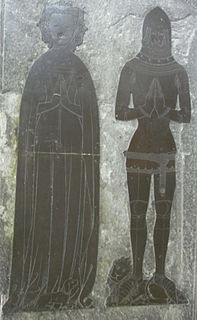 W
WThomas de Berkeley, 5th Baron Berkeley, The Magnificent, of Berkeley Castle and of Wotton-under-Edge in Gloucestershire, was an English peer and an admiral. His epithet, and that of each previous and subsequent head of his family, was coined by John Smyth of Nibley (d.1641), steward of the Berkeley estates, the biographer of the family and author of "Lives of the Berkeleys".
 W
WThomas of Lancaster, Duke of Clarence was a medieval English prince and soldier, the second son of Henry IV of England, brother of Henry V, and heir to the throne in the event of his brother's death. He acted as councillor and aide to both.
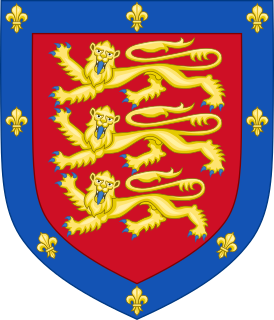 W
WHenry Holland, 3rd Duke of Exeter, 3rd Earl of Huntington was a Lancastrian leader during the English Wars of the Roses. He was the only son of John Holland, 2nd Duke of Exeter, and his first wife, Anne Stafford. His maternal grandparents were Edmund Stafford, 5th Earl of Stafford, and Anne of Gloucester.
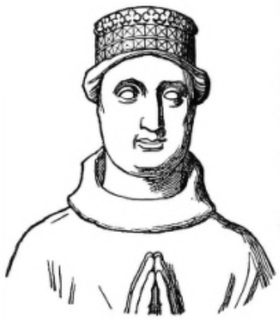 W
WJohn Holland, 2nd Duke of Exeter, 2nd Earl of Huntingdon was an English nobleman and military commander during the Hundred Years' War. His father, the 1st Duke of Exeter, was a maternal half-brother to Richard II of England, and was executed after King Richard's deposition. The Holland family estates and titles were forfeited, but John was able to recover them by dedicating his career to royal service. Holland rendered great assistance to his cousin Henry V in his conquest of France, fighting both on land and on the sea. He was marshal and admiral of England and governor of Aquitaine under Henry VI.
 W
WThomas Beaufort, Duke of Exeter was an English military commander during the Hundred Years' War, and briefly Chancellor of England. He was the third of the four children born to John of Gaunt, Duke of Lancaster, and his mistress Katherine Swynford. To overcome their problematic parentage, his parents were married in 1396, and he and his siblings were legitimated in 1390 and again in 1397. He married the daughter of Sir Thomas Neville of Hornby, Margaret Neville, who bore him one son, Henry Beaufort. However, the child died young.
 W
WRichard Grey, 1st or 4th Baron Grey of Codnor KG was an English soldier and diplomat.
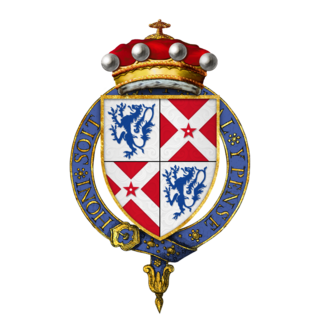 W
WWilliam Neville, 1st Earl of Kent KG and jure uxoris 6th Baron Fauconberg, was an English nobleman and soldier. He fought during the latter part of the Hundred Years War, and during the English dynastic Wars of the Roses.
 W
WRichard III was King of England and Lord of Ireland from 26 June 1483 until his death in 1485. He was the last king of the House of York and the last of the Plantagenet dynasty. His defeat and death at the Battle of Bosworth Field, the last decisive battle of the Wars of the Roses, marked the end of the Middle Ages in England. He is the protagonist of Richard III, one of William Shakespeare's history plays.
 W
WJohn Beaufort, 1st Marquess of Somerset and 1st Marquess of Dorset, later only 1st Earl of Somerset, was an English nobleman and politician. He was the first of the four illegitimate children of John of Gaunt (1340–1399) by his mistress Katherine Swynford, whom he later married in 1396.
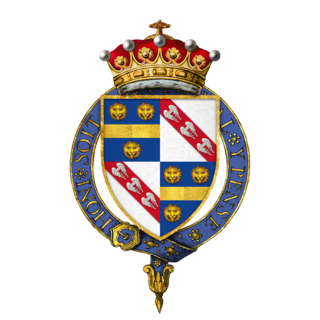 W
WWilliam de la Pole, 1st Duke of Suffolk,, nicknamed Jackanapes, was an English magnate, statesman, and military commander during the Hundred Years' War. He became a favourite of the weak king Henry VI of England, and consequently a leading figure in the English government where he became associated with many of the royal government's failures of the time, particularly on the war in France. Suffolk also appears prominently in Shakespeare's Henry VI, parts 1 and 2.
 W
WRichard Neville, 16th Earl of Warwick, known as Warwick the Kingmaker, was an English nobleman, administrator, and military commander. The eldest son of Richard Neville, 5th Earl of Salisbury, he became Earl of Warwick through marriage, and was the wealthiest and most powerful English peer of his age, with political connections that went beyond the country's borders. One of the leaders in the Wars of the Roses, originally on the Yorkist side but later switching to the Lancastrian side, he was instrumental in the deposition of two kings, which led to his epithet of "Kingmaker".
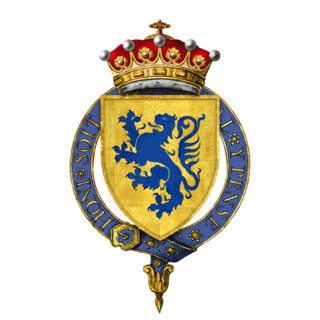 W
WThomas Percy, 1st Earl of Worcester, KG was an English medieval nobleman and naval commander best known for leading the rebellion with his nephew Henry Percy, known as 'Harry Hotspur', and his elder brother, Henry Percy, 1st Earl of Northumberland.